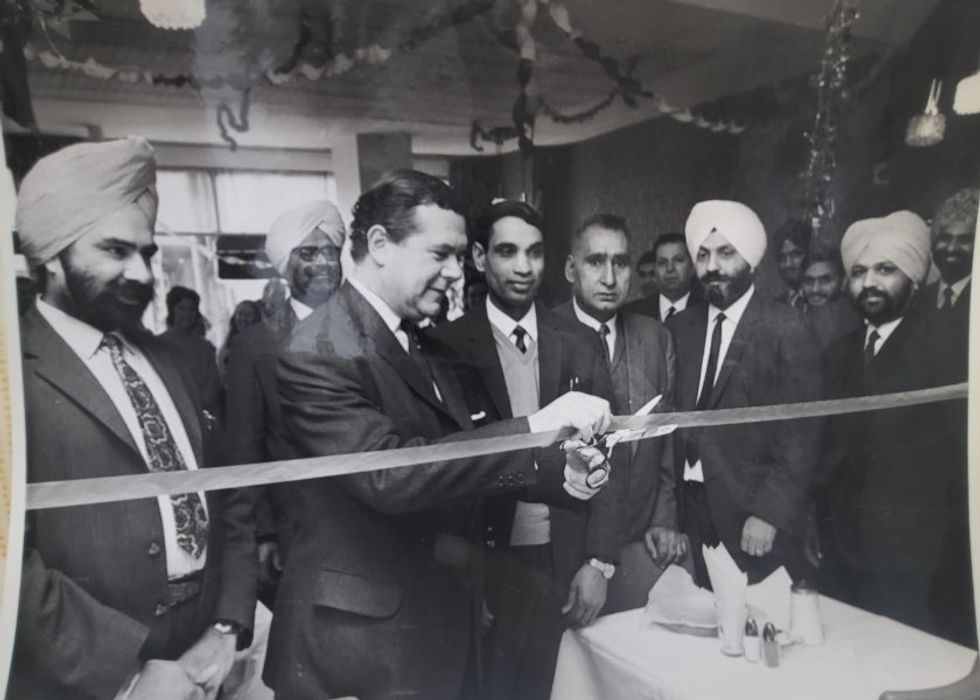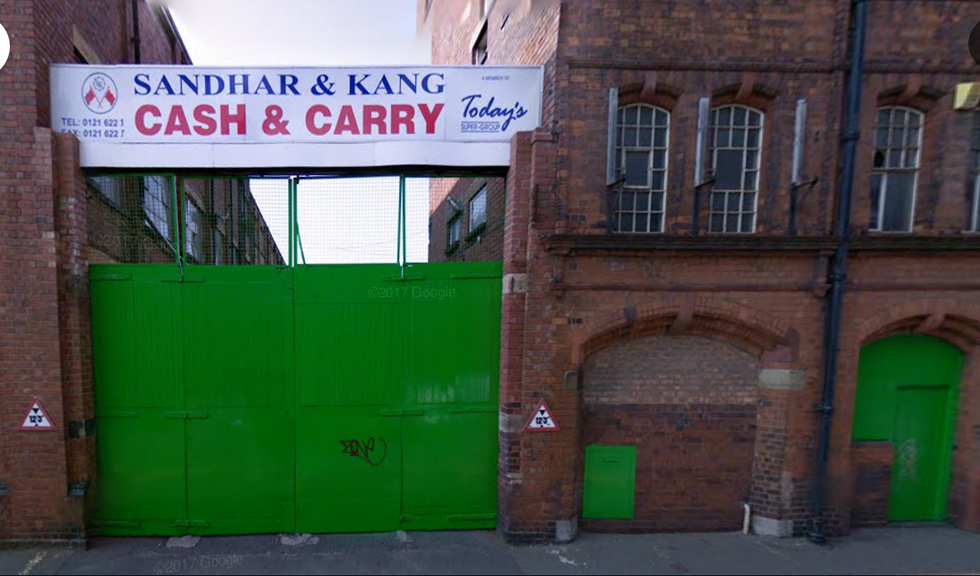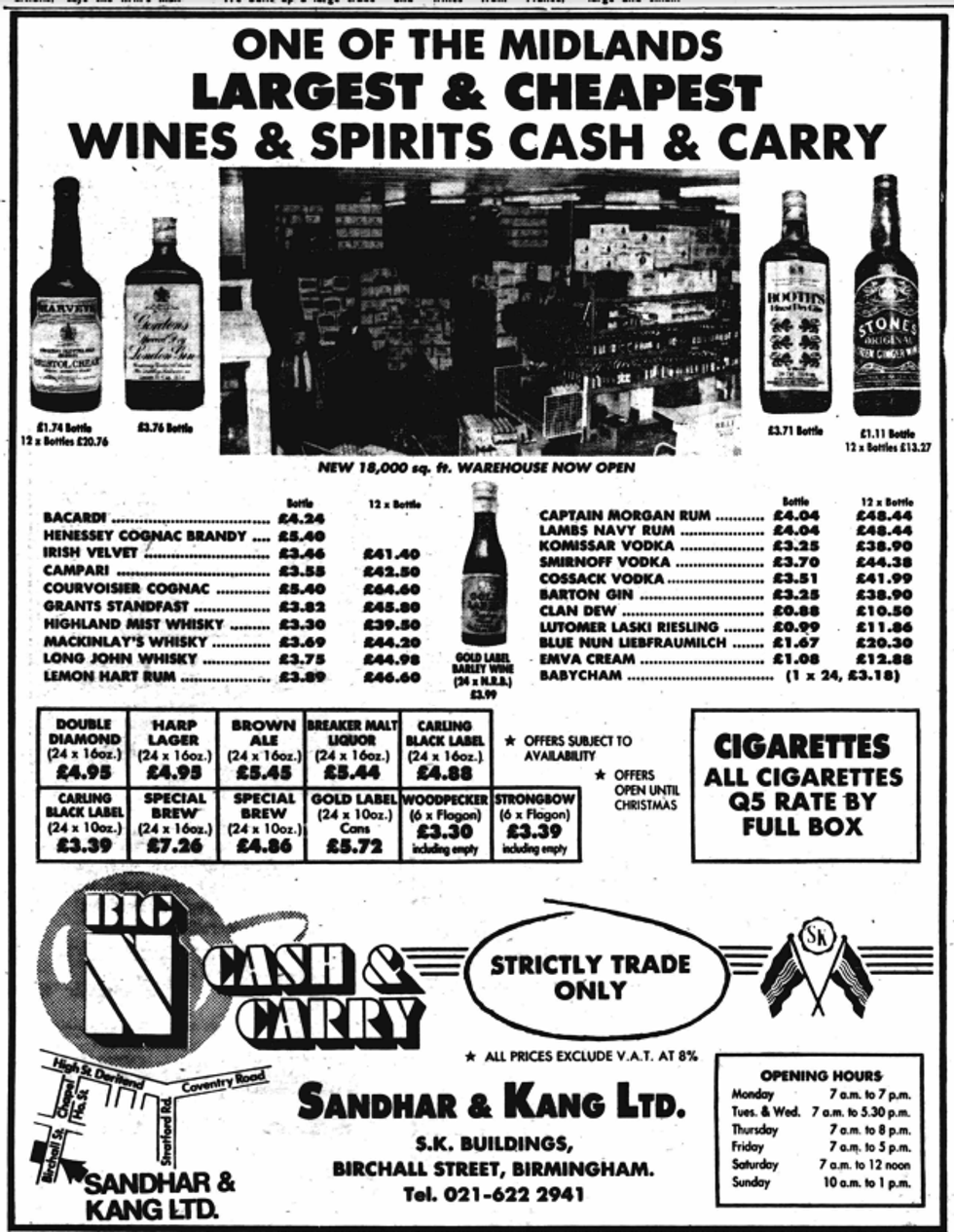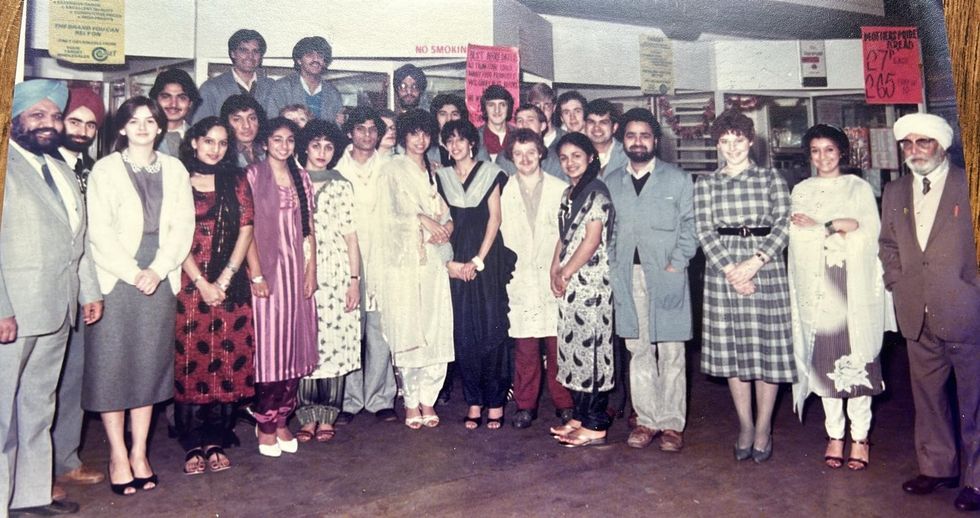True entrepreneurs don’t just see opportunities; they seize them, reshape them, and build legacies that outlive their time.
Late Karnail Singh Sandhar was one such visionary, a man whose entrepreneurial zest turned challenges into opportunities and dreams into legacies.
One of the pioneering figures in convenience as well as wholesale world, Karnail sadly passed away a few months ago.
While many of us know him as the force behind yesteryear’s wholesaling giant Sandhar and Kang cash and carry, Karnail is also and forever be the first Asian-origin man to own a convenience store in the entire Warwickshire region.
In a time marked by challenges and racism, Karnail carved out a significant place for himself in the UK’s convenience and wholesale sectors, paving the way for future generations while leaving a lasting impact on the communities he served.
His remarkable journey, as shared by his daughter Harbinder Sandhar in an emotional conversation with Asian Trader, reveals the story of a man who refused to let adversity define him.
Diving into detail about her father’s struggle, precise acumen in business, and risk-taking capability, Harbinder revealed how her father ended up playing an instrumental role in shaping the UK’s wholesale world as we know it today.
Karnail’s journey began with an unforgettable childhood moment that ended up shaping up his life.
As a 12-year-old boy in Punjab in India, he had to watch his father Ujagar Singh Sandhar break down in tears after a relative refused him a small loan that he needed to move to the UK for a better future.
Eventually someone did intervene and help but watching his father crying helplessly implanted a seed in Karnail’s mind—a determination to become abundant with money and never let his family face such a situation ever again.
Following his father's footsteps, Karnail also moved to the UK. Landing here in 1956, he joined the Ford's foundry factory where he went on to work for five years.
However, the grueling hours filled with hard physical labour failed to kill his entrepreneurial spirit and eventually drove him to achieve the impossible.
She said, “While still working at the Ford factory, my father bought a shop which he decided to run as convenience store.
"Back in those days, it was not an easy feat for a brown person to own a commercial property in England, but he still managed to do that. And in this process, he became the first Asian man to own a convenience store in Warwickshire.”
To further expand his income, he and his newly-wedded wife began selling home-stitched clothes door-to-door.
However, he soon realised that the scope for growth and stability lies in food and drinks sector, particularly of Indian spices and ingredients whose demand was rising sharply, Harbinder explained.
At the time, for an Asian origin man, trying to establish his own business was a tricky thing to do. Racism was rife and brown people were not welcome everywhere, Harbinder said.
Karnail’s newly established business and life also came under the radar, making him a victim of racism.
She revealed, “When my father opened his first shop, racism was at its peak. The shop was petrol bombed, and bricks were thrown at our house.”
Despite the hostility, Karnail remained focused and soon his business flourished. He soon bought another bigger shop in Leamington Spa. After a couple of years, he merged this shop with a neighbouring store, owned by Avtar Singh Kang, along with Swarn Singh Kang and Udham Singh Kang.
The merged shops very soon forayed into procuring their own goods directly from India, thus putting the foundation stone of Sandhar and Kang cash and carry.
“In 1960s, my father started importing spices and grocery items in large quantity through telex transfer from Amritsar in India. Nobody taught him how to do telex transfer; he figured out everything on his own,” Harbinder said.

It was around this time that Karnail quit his job in Ford foundry factory (after an ugly racism incident) and decided to put all his time and energy into growing his business.
“They (my father and Kang brothers) soon bought a couple of lorries to pick up the imported consignment from the port. They used to unload, load, pack them, put labels; they used to do everything on their own for a very long time. They first started supplying door to door and eventually to other stores.”
As the business expanded, Karnail and Kang brothers felt the need of a bigger space, so they bought a huge empty building which was formerly a Jaguar plant, a huge 134,000 square feet space in Birchall Street in Birmingham.
Sandhar and Kand Cash and Carry moved into this space, eventually becoming the biggest cash and carry for Asian foods in the UK of its time.
Apart from Asian food and spices, the massive new space also enabled Karnail to focus on stocking a wider range of alcohol range right from local brown ale to every variety of spirits and wines sourced as far as from France, Germany, Spain, Italy and Yugoslavia.
Owing to the focus on this niche, Sandhar and Kang cash and carry soon came to be known as Midland’s largest and cheapest wine and spirits wholesaler.
Karnail also had an eye for identifying rising stars in the industry, Harbinder said, adding that Sandhar and Kang Cash and Carry also became a lifeline for other emerging food and drink businesses across the Midlands and beyond.
“Some of my father’s earlier clients were East End Foods, Bestway, Imperial Snack Foods, Tilda and Cobra Beer. My father helped Lord Karan Bilimoria when no major wholesaler was ready to stock his beer line. He gave him space to stock his beer, and it soon became a huge hit.
"Sandhar and Kang was among the first wholesalers to pack own-brand products under SK branding.
“My father used to help and uplift whoever sought his advice or help. Sometimes, he also gave credit to Asian entrepreneurs who wanted to open business or shops in Leamington Spa.
“My father achieved so much, and he was just 35 at the time. A very humble man, he stopped eating meat and completely embraced all the aspects of Sikhism, highly influenced by my very religious mother.
"He lived a simple life and the only thing he was fond of was cars. In 1973, he bought a Rolls Royce," she said.
Sandhar and Kang cash and carry grew rapidly in the late 1970s and 1980s, becoming the biggest wholesaler in Midlands.
Retailers and smaller wholesalers as far away as Manchester, Bristol, Liverpool and London used to visit the depot. Another branch was soon opened in Wolverhampton.
By the late 1970s, alongside leading Sandhar and Kang cash and carry, Karnail started exploring Canada’s grocery sector.
Harbinder continued, “My father realised that there is no Indian shops in Canada so once again, he moved places, this time to establish business for my brothers Sukhbinder, Rashpal and Zorawar Sandhar.
"He founded an Indian grocery store called East West Foods and soon started importing Indian line of food items and ingredients. Very soon, the word went round and people from all over Canada started coming to Toronto to visit our store.
"The business soon flourished into chains of stores and forayed into wholesaling as well.
“In a way, it is my father who played a crucial role in introducing Asian food and flavours in Canada.”
Life Rooted in Community
Despite his business successes spanned across two countries, Karnail, along with his wife Surjit Kaur, remained deeply connected to Sikh faith and community, both in the UK and Canada alike.
Harbinder informed Asian Trader how her mother had brought a Guru Granth Sahib (central holy religious text of Sikhism) to the UK with her when she got married.
Soon, the families from the community started gathering at the couple’s house to pay respect and conduct prayer meetings.
She said, “As the community grew, people rented a hall and requested my mother to bring the Guru Granth Sahib there so that more people can get together and pray.
"And that is how, they ended up founding the first Gurdwara in Leamington Spa.”
In 1998, Karnail fell seriously ill after which he retired from business and decided to dedicate his life to community service. He soon became the head of a gurdwara in Toronto and spent most of life there.
“My father was a generous man who was always ever ready to help anyone who is in need (financially or otherwise), be it friends, community people, business acquaintances, his employees or friends and relatives in India,” she said.
In his later years, Karnail also donated three acres of land in Punjab, India to a close friend Balbir Singh Sohi who wanted to open a school in the memory of his late wife.
“When my father came to know about the noble cause, he did not think twice and gave the land absolutely free.”
10 years later, the school, called JK Memorial Global School Bagrian, is a thriving and reputed institute with more than 700 students.
“My father was next to none. It was his sheer hunger for success and fire in his belly, that made him into what he was.
"He was among those extra-ordinary pioneering immigrants of the time who came to the UK with almost nothing yet managed to create not just legacies but also paved the way for future generations to come ,” Harbinder concluded.
Karnail left Sandhar and Kang Cash and Carry in the late 1990s. In 2011, the cash and carry was sold to new owners Gurinder Gill and Ajminder Singh and is now known as SK Food and Drinks.




![Karnail Singh Sandhar: Legacy of resilience, courage and vision [Exclusive]](https://www.asiantrader.biz/media-library/late-karnail-singh-sandhar-founder-of-uk-s-first-biggest-asian-focused-cash-and-carry-as-well-as-warwickshire-s-first-asian-ori.jpg?id=55350177&width=1200&height=1404)





